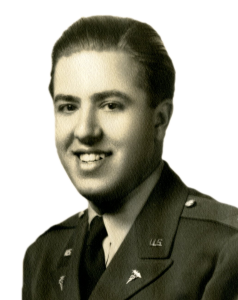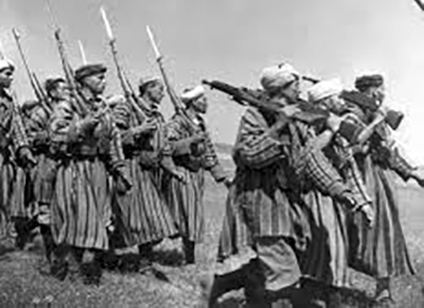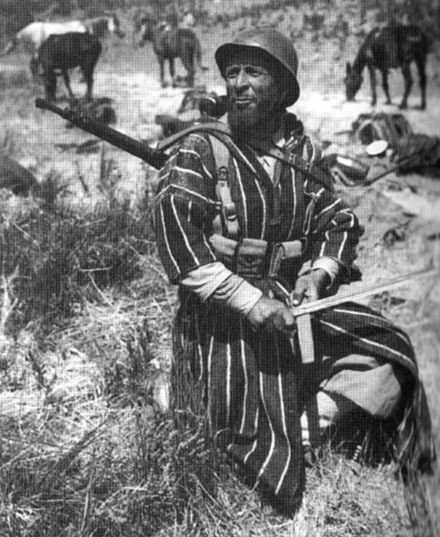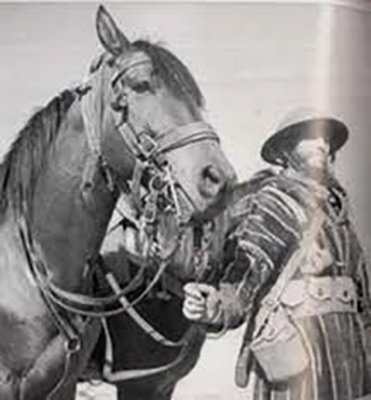May 30, 1944
The 616th was acting as a holding hospital just a mile away from the advance point of the hospital train that took patients to the hospitals in the Naples area. The patients had received their primary treatment at hospitals closer to the front and were held at the 616th overnight and loaded on the train the following morning.
The second day we were there the 616th received about 1000 casualties, most of whom were Americans, but also many Ghoumies and French Africans and an occasional German prisoner. One of these German prisoners was looking forward to being sent to the United States and inquired about getting a job there after the war, and sending for his wife and baby.
The wounds varied all the way from minor superficial shell fragment woulds to severe compound fractures, chest wounds and abdominal woulds with colostomies.
When one realizes that 1000 patients a day are coming through this one hospital, it immediately becomes apparent that it is a terrific problem to keep up an army on the fighting front. It will be at least 2 weeks before even the minor wounded cases are back in the fight, and the majority will be out for a period of months. An American graveyard in the vicinity serves as a grim reminder that many of our boys don’t even reach the hospital. Life becomes much too cheap in this game of war. I can’t help thinking of the thousands of families whose dreams for the future are completely shattered in one brief moment.
The Ghoumies are an amusing group. They fight for the love of fighting and the money they are paid, as well as the valuables they can pick off their victims. It was hard to keep even the badly wounded ones in bed – they insist on hobbling to the mess line with their blood soaked bandages from head to foot. They describe their fighting with gestures similar to a ten-year-old boy playing cops and robbers. They love to imitate machine guns mowing down the Germans. We can surely be glad that they are fighting with us rather than against us.
.





